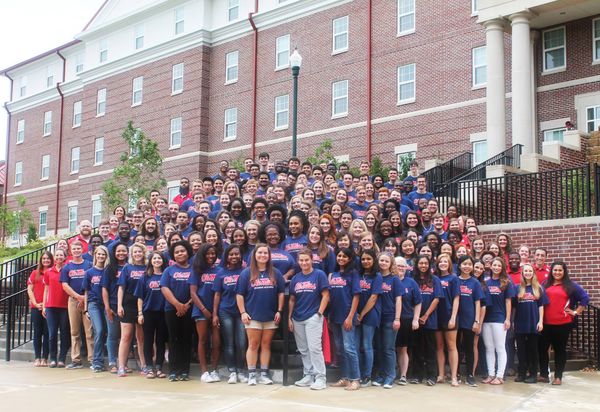As soon as I saw your article, I knew I had to click on it. A cover photo of different colored crayons, an eye-catching title. I was curious as to the content of the article. As I read your article, I knew I had to write back. I wanted to respond, from one Odyssey writer to another. You have a right to your opinion of the nonexistence of white privilege and the term as racist and freedom to express that opinion. I do believe that your article reflects a lot of the misconceptions that society more generally holds about the concept of white privilege and what that means in the context of today. I wanted to provide a different perspective on what white privilege is, how we, as white folks, benefit from it, and what this means moving forward. I'm hoping that we can open up some dialogue, because talking about these topics that are often deemed taboo, that people become immediately defensive about, is really important, not only for now, but for the future. Claiming that we as white people don't have privilege because we don't understand it helps no one involved.
One of the major misconceptions about the idea of white privilege is that the privilege aspect of the term means that you didn't struggle or that you lived a life of luxury. That's not accurate at all. Despite the fact that you and I are not famous, not experiencing lives of luxury, we still experience privilege for the sole fact of being white. It doesn't mean we were handed everything or had an easy life. Privilege in this sense means there are certain things that you and I will never have to worry about or experience because of our racial identities and the color of our skin. You actually mentioned some of these in your piece.
Recommended for you
"[As] a white person, there are some things I don't have to worry about as much to an extent. When I'm on a plane, I don't have to worry about people hoping I don't have a bomb. When I'm walking on the sidewalk with my hood up, people won't think that I'm going to mug them"
You're absolutely right. We don't have to fear that police will shoot us for making one slight move. We don't have to worry about employment and housing discrimination because of the color of our skin or because our name sounds "black." We don't have to worry about those things; that's white privilege.
As you alluded to, racism does play role in how white privilege emerged. However, your definition of racism lacks, as it doesn't take into account the role of power and structures in the construction of race and the inequities that result. Racism is more than just individual attitudes and actions; it also includes the structures through which society operates. If you ever have the chance to read Michelle Alexander's book, "The New Jim Crow," I highly recommend it. She goes more into depth about structural racism and it's role in mass incarceration. For now, I'll give you a teaser, with a passage about what racism has come to mean today.
The unfortunate reality we must face is that racism manifests itself not only in individual attitudes and stereotypes, but also in the basic structure of society. Academics have developed complicated theories and obscure jargon in an effort to describe what is now referred to as structural racism, yet the concept is fairly straightforward. One theorist, Iris Marion Young, relying on a famous "birdcage" metaphor, explains it this way: If one thinks about racism by examining only one wire of the cage, or only one form of disadvantage, it is difficult to understand how and why the bird is trapped. Only a large number of wires arranged in a specific way, and connected to one another, serve to enclose the bird and to ensure that it cannot escape.
The birdcage Iris Marion Young refers to is a metaphor for our society. The structures and the fabric of our society were historically built to benefit the people they were built for: white, affluent, male property owners. With some change, those structures still continue to operate in favor of those folks today. We can all work hard and strive to overcome obstacles in our way, but there are structural barriers that make it more difficult and require a lot more work to challenge. You note that your children may not get into school because they are less fortunate and white. You may be partially right. If you mean not affluent, there are some structural barriers that your children might face in attempting to afford a higher education. However, your children will never not get into a school because they are white. And I can sense a counterargument about affirmative action, but in reality, if you actually research affirmative action, you would see that the main beneficiaries of affirmative action are white women, and not people of color.
I do agree with you on one point however, and that is the term "white privilege," though we disagree on the term for different reasons. The term white privilege is not racist, and it did not come out of nowhere; it was a term that emerged in academia. I do find it problematic because it centers white people, as if everything is about white people, that white is the default. By centering white people, we are contributing to structural racism, reestablishing the power dynamic that has allowed these structures to continue. On the other hand, the concept is very real and very valid. We cannot ignore the structural components of racism and white privilege, and we can't just not do something about it because we don't understand it. When we don't talk about it, when we choose to deny or ignore it, we are contributing to it.


















